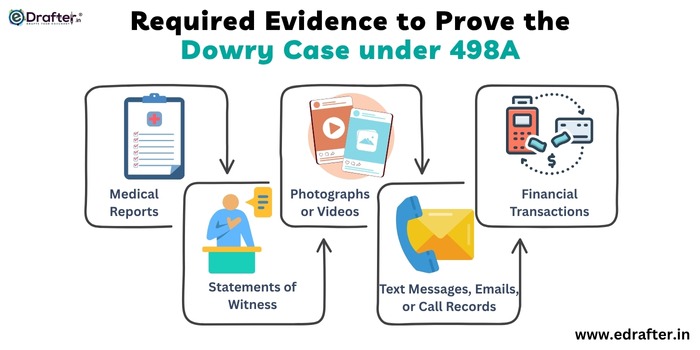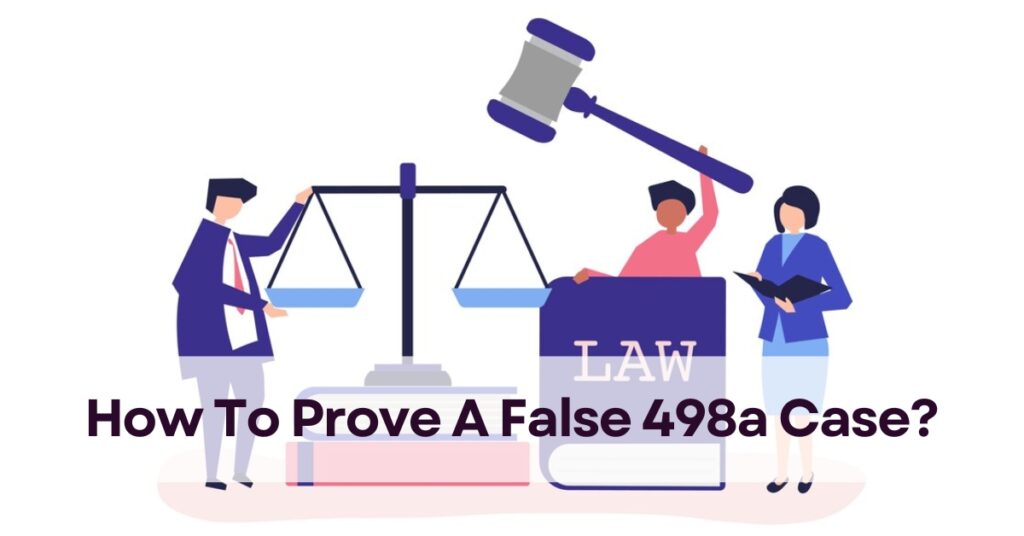Table of Contents
In India, Section 498A of the Indian Penal Code (IPC) was enacted with the high-minded intention of safeguarding married women from cruelty and harassment on the ground of dowry. But, as time passed, the abuse of Section 498A became the biggest issue, and many false dowry cases have been lodged. While the true cases of harassment must be handled seriously, false cases can destroy lives, families, and reputations. In this blog, we’ll discuss how to handle a false 498A case, what is needed in terms of evidence, the Legal process and some recent judgments reflecting the repercussions of filing false dowry cases.
What is Section 498A IPC?
Section 498A IPC was enacted in 1983 to safeguard women against cruelty from their husbands or in-laws. Physical or mental abuse, especially when it is associated with ilLegal dowry demands, amounts to cruelty. The Act’s sole purpose is to avoid cases of dowry harassment and provide relief to the harassed women.
What is a 498A Case?
When a wife files a complaint about cruelty or harassment for dowry by her husband or her in-laws, a 498A case is lodged. It is a criminal case once lodged, leading to arrest and investigation.
What is the Punishment under Section 498A?
Those convicted under Section 498A IPC may face:
- Imprisonment of up to three years.
- A fine, as determined by the court.
This stringent punishment emphasizes the seriousness of dowry harassment but also highlights the need for caution to prevent its misuse.
What are the Rights guaranteed under Section 498A?
The rights provided under Section 498A mainly focus on protecting women. However, the accused also has certain rights, including:
- Right to Bail: While the offence is non-bailable, anticipatory bail can be sought.
- Right to Fair Trial: The accused can present evidence and witnesses.
- Right to Legal Representation: Hiring an experienced lawyer to challenge false allegations.
What is the Required Evidence to Prove the Dowry Case under 498A?
To establish a legitimate dowry harassment case, the following evidence can strengthen the case:

- Medical Reports: If physical abuse is involved.
- Statements from Witnesses: Neighbors, relatives, or friends who can validate the claims.
- Photographs or Videos: Evidence of physical injuries or abuse.
- Text Messages, Emails, or Call Records: Proof of harassment or dowry demands.
- Financial Transactions: Documents showing dowry payments, if applicable.
How do People Misuse Section 498A?
Despite the fact that the intention of the section is to provide protection to women, section 498A has been misused as:
- A Tool for Extortion: Demanding money to settle cases.
- Revenge or Malicious Intent: In cases of marital disputes or failed marriages.
- Pressuring the Husband’s Family: Often, not just the husband but even distant relatives are implicated.
Example: The Nisha Sharma Dowry Case
In 2003, Nisha Sharma gained media attention for rejecting her groom due to dowry demands. However, it was later revealed that the case was not about dowry but rather a pre-existing love affair. This example showcases how false dowry cases can mislead the Legal system.
How to Protect Yourself from False 498A Cases?
- Collect Evidence: Keep records of all interactions, whether in person, via phone, or messages.
- Inform Authorities: Lodge a preventive complaint with the police if you anticipate false charges.
- Seek Legal Advice: Engage a competent lawyer who specializes in dowry cases in India.
- Apply for Anticipatory Bail: This can prevent immediate arrest.
Can someone File a Counter Case against a False 498A Case?
Yes, if proven false, the accused can take Legal action against the complainant under:
- Section 211 IPC: For false charges with the intent to harm.
- Section 500 IPC: For defamation.
- Section 182 IPC: For giving false information to a public servant.
- Filing a Civil Suit: To claim damages for mental agony and financial losses.
What are the Required Evidence and the Process to Prove a False Dowry Case?
To prove that the case filed against the husband is false, a proper following of procedure and evidence will be required.
- Collection of Evidence and Related Documents such as:
- Phone call recordings between the wife and the husband or his relatives.
- Text messages, emails, or other digital communication.
- Proof that the wife left her husband’s home voluntarily.
- Photographic or video evidence contradicting the allegations.
- Financial records showing no dowry transactions.
Here is the process to prove a False Dowry case:
- Get Legal advice: Visit our website eDrafter.com and book a consultation to get expert advice.
- File a defamation case: File a defamation case against the complainant for harming the reputation of the husband and his family.
- File an FIR against the wife: Accuse her of falsely framing the husband and his family and include claims of blackmail, harassment, or causing harm.
- Apply for anticipatory bail: To prevent immediate arrest and maintain Legal protection.
- Engage in court proceedings: Attend all hearings and present the collected evidence methodically.
This approach not only helps in proving a false dowry case but also demonstrates a proactive stance in defending oneself Legally.
What is the Punishment for False Dowry Cases in India?
The punishment for filing a false dowry case can vary, including:
- Imprisonment: Up to 2 years
- Fine: Monetary penalty as decided by the court.
- Legal Consequences: The complainant may face criminal charges for false allegations.
What is the Recent High Court Judgement on a False Dowry Case?
Recently, the Delhi High Court imposed a fine of ₹1 lakh on a woman for filing a false 498A case. The court emphasized that misuse of laws meant to protect women’s rights could not be tolerated and that those filing malicious complaints would face Legal repercussions.
Conclusion
Although Section 498A of the IPC is a good law to safeguard women from cruelty and harassment for dowry, its misuse can lead to irreparable harm to innocent individuals. It is necessary to separate genuine and false cases of dowry to deliver justice. If you are a victim of false accusation, you must seek proper Legal guidance by booking your appointment today on eDrafter.com to help you navigate the process efficiently.

